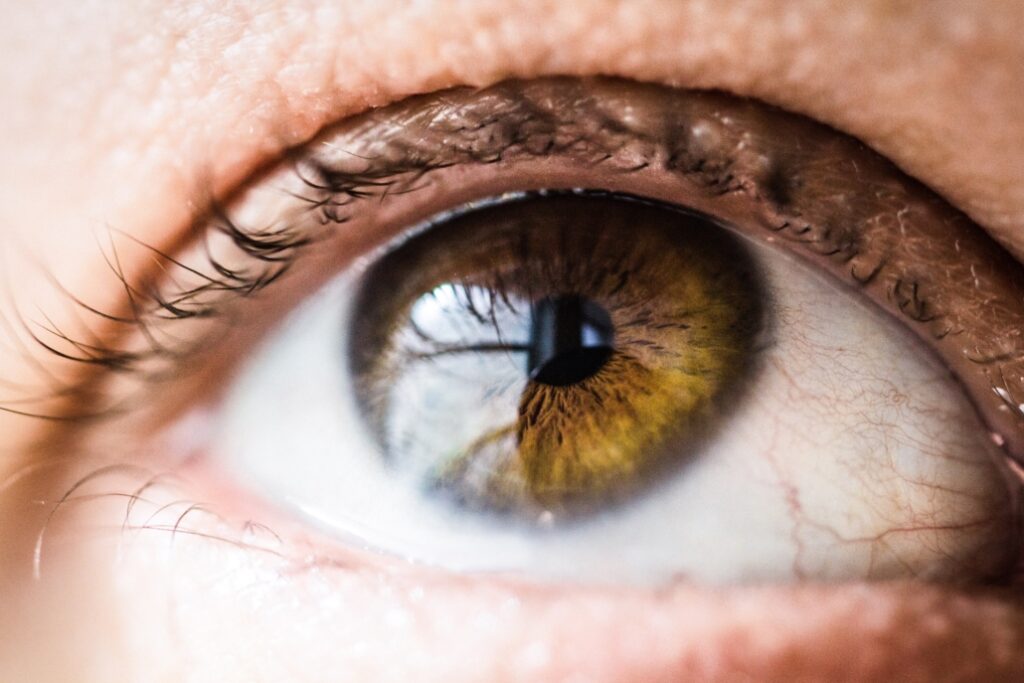Have you ever accidentally scratched your eye (cornea)? It’s not pleasant, to say the least. But also something that can happen surprisingly easily. Read this week’s article all about corneal abrasions and what you should do if you ever experience a scratch to your eye.
Aaron was on his way to his final exam of the semester. He was extremely excited to be done with the school year and ready to enjoy summer. He hurriedly got ready, and as he attempted to place his right contact into his eye he accidentally dropped it on the floor. Without thinking twice about cleaning the contact lens or simply using a new one, he tried to put the dirty contact into his eye with success. During his exam, Aaron’s right eye felt a little off, like there was something foreign in his eye. As soon as he got home, he decided to take his contacts out and give his eyes a break. When he removed his right contact Aaron felt a sudden pain; his eye began to water and redden and was having some light sensitivity.
Aaron’s story is nothing out of the ordinary. When he decided to put the dirty contact into his eye for a second time, debris off the floor also entered his eye and scratched his cornea. Ouch!
So what is the cornea? The cornea is a multi-layered, clear tissue that sits on top of the eye. It is considered the eye’s outer layer. It functions to help protect the eye against debris and germs, but it also helps focus light onto the lens of the eye.
Symptoms Of A Corneal Abrasion
As in the case of Aaron, when a corneal abrasion occurs, an individual may experience one or more of the following symptoms:
- eye tearing
- redness
- light sensitivity
- nausea
- reduced vision
- eye ache
- a feeling of something foreign in the eye
If the cornea is compromised it is best to seek professional medical help sooner than later to help assess how deep the abrasion has occurred. Also, to ensure that the area does not get infected, which could cause other more serious issues.
Treatment
Treatment for a corneal abrasion varies on its severity. In cases where the scratch is superficial, the eye will generally heal itself within a few days. Your optometrist may still prescribe an antibiotic to help the healing process and to prevent an infection from occurring. In cases where an abrasion is deeper, the healing time is longer and you may be asked to wear a bandage contact lens. Bandage contact lenses are as they sound a ‘bandage’ and aim to reduce any discomfort while the injured eye begins to repair itself. It is not advised that contact lens wearers wear their contacts while their eye is healing. Doing so can increase the likelihood of an infection, like in the case of Aaron who wore the fallen contact lens for a good part of his day. Your optometrist will let you know when it is safe to begin wearing prescription lenses usually after a follow-up appointment. Additionally, your optometrist may prescribe a steroid or a gel/ointment to help the healing process and reduce inflammation.
Prevention
Most of us probably rub our eyes as soon as we wake up. Something as simple as this can scratch the cornea in cases of dry eyes and so it is important to always be gentle when it comes to your eyes. Although many activities can scratch the cornea, there are certain active steps everyone should take to keep their eyes healthy and safe. Prevention is the best defense when it comes to our delicate and irreplaceable eyes. It’s important to use common sense when engaging in activities like sports or certain work environments. If protective eyewear is recommended, use it! Additionally, always follow proper hygiene for contact lens wear.
Are you having trouble seeing clearly? It’s best to come in sooner than later. Give us a call or book online with Dr. Sharma.
Remember an eye exam is more than just new specs, it’s a chance to ensure your eyes are healthy too.
